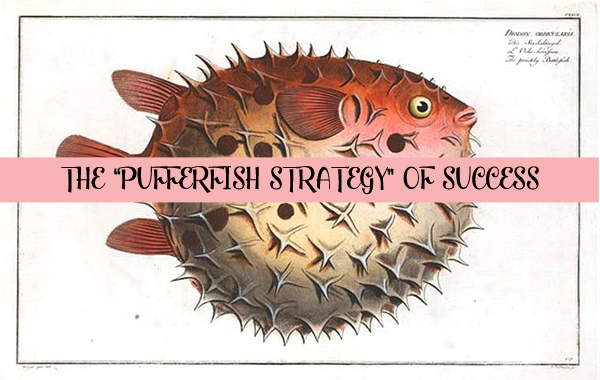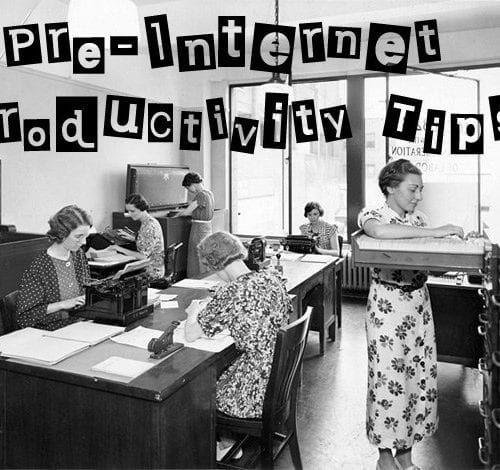The post 5 Body Language Poses That Can Sabotage Success keeps popping up on websites I visit, accompanied by a lovely stock photo of a woman’s lower legs and ankles.
The woman is wearing a sweet pair of black heels. Her ankles are crossed. You can see the flounce of her dress. There’s a little bit of an Alice in Wonderland feel to it. Cool, I’m glad women in business are no longer told to wear power suits and shoulder pads.
The post itself contains the following:
“Businesswomen will ask why they aren’t being taken seriously … and it’s often because their body language communicates ‘little girl,’” Sayler says. “Many of these poses, while acceptable in social situations, make women in the business world look small and unimposing.”
Also this:
“Little-girl poses elevate the stress hormone, cortisol, making a woman feel less confident, whereas a power stance like the ‘Wonder Woman’ pose changes her body chemistry so that she feels more confident and successful,” says Sayler, who doesn’t suggest using the Wonder Woman stance in public, as it’s too aggressive.
And this:
Women cross their ankles while standing because it is more comfortable, especially if they’re wearing high heels, but it is not a good idea, because it sends the message that you are shy and insignificant, says Sayler.
So should you enhance your career by trying to make yourself larger and more physically intimidating?
(Note: The phrase “body language poses” is redundant, no? Like … “facial movement expressions.” Or “dance move positions.”)

Personally, I think this is some last-century-level BS. I am really tired of business advice that, if followed precisely, allows women to attempt to compete to be second place at best. Let’s make our voices deeper! Let’s take up more space when we sit! Let’s clench our fists when we walk into a room, as though we’re ready for a fistfight! I have actual boxing experience (see Bullish Life: What I Learned From Being Captain of My College Debate and Boxing Teams at the Same Time), and I am not going to win any kind of fistfight, ever. This is a losing game.
Most of us are just not going to win at being physically large and intimidating. And need I point out that “largeness” is not generally a quality valued in women in our society? So the message seems to be: Don’t be too small, but definitely don’t be, like, actually “large” or something! And stand more like Wonder Woman, but not too much like Wonder Woman, because that would be aggressive. Nevermind that Wonder Woman is nowhere near the far end of aggressiveness. She was always drawn to be appealing – and thus, not very intimidating – to men.
Is being small really a big disadvantage? Allow me to introduce a quote from 2102 Republican presidential contender Newt Gingrich, who wrote this piece of wonderment back in 1995:
If combat means living in a ditch, females have biological problems staying in a ditch for thirty days because they get infections and they don’t have upper body strength. I mean, some do, but they’re relatively rare. On the other hand, men are basically little piglets, you drop them in the ditch, they roll around in it, doesn’t matter, you know. These things are very real. On the other hand, if combat means being on an Aegis-class cruiser managing the computer controls for twelve ships and their rockets, a female may be again dramatically better than a male who gets very, very frustrated sitting in a chair all the time because males are biologically driven to go out and hunt giraffes.
Apparently Newt is playing amateur gynecologist here, which kind of creeps me out. (Also, living in a ditch is not conducive to human health in general. Trench foot was a serious problem in WWI, apparently made worse by the fact that soldiers neglected to take off their boots and socks and dry their feet every day. So, apparently, strong habits of personal care and grooming are actually conducive to military readiness.)

But as full of basically hilarious gender essentialism as this is, many more people have careers related to “sitting in a chair all the time” than to hunting giraffes. If you’re a woman in the military, shit like this is a lot less funny. But if you have an office job, the stereotype that women are better at sitting in chairs all day is hardly the worst stereotype. Do we really need to act more like giraffe hunters?
I sent the “body poses” article over to someone who has turned smallness into a brand — Mallory Blair from Small Girls PR, which she runs with partner Bianca Caampued. Mallory is 5’3 and Bianca is 5’0.
What I remember of the first time I met Mallory was pretty much walking in in the middle of a story about just how many full-time employees her company employed; during this conversation, Mallory was comfortably curled up in a folding-type chair in a way that doesn’t even work if you wear larger than a size 6 shoe.
I mean … I think that’s pretty intimidating. Someone who has approximately 70% of my body mass is co-running a serious enterprise and also could sneak up behind me at any time. Nobody needs a fucking Wonder Woman pose. (See also Bullish: How to Be a Productivity Unicorn.)
Anyway, I asked Mallory about smallness and career success. Although Small Girls sometimes receives fan mail from small women (stand up for small people! or just sit down and do stuff really well!), Mallory notes that “we didn’t intend to make a commentary on feminism or petite-ism, if you will, when we started the company,” and that she and Bianca are “not trying to suggest we’re at a disadvantage for being small girls — in fact, it’s the opposite, I think being a small girl has given me plenty of advantages by crafting who I am and how I relate to those around me.”
And how, exactly, can smallness be an advantage? From Mallory:
If you’re small, you’re constantly jumping and speaking up when you’re young, whether it’s to be picked for a team or to grab a slice of birthday cake off the table. If you’re tall, you don’t have the need so you might not be as apt to act that way as an adult. I was so used to being the shrimp that I made up for it by projecting my voice, ideas, and energy, all characteristics that lend themselves to “leading” (or, glass half empty, the dreaded “Napoleon complex.”)
Thanks, Mallory! You can check out Small Girls PR here, and this New York Post piece for a cheat sheet on turning girlishness itself into business success.
I am beginning to suspect that the constant flow of advice to women to act larger and deepen our voices is just propaganda from men who can’t conceive of — or are terrified by — female success that doesn’t look anything like male success.

In Bullish: How to Motivate Yourself to Be Motivated, I interviewed two women I called The Author and The Entrepreneur. One has worn girlish full skirts and dresses every day for at least ten years. The other wears casual, athletically-styled clothes and once told me that she enjoys looking less important and powerful than she really is. That way she can go about her business with no fuss, but if someone is rude or demeaning, she retains the element of surprise (“Actually, I own this restaurant.”)
I know more than a few positively angelic looking tiny women who you really shouldn’t piss off. While I’m certainly more afraid of a big dude in a dark alley, that is not the case in an office situation. Men who are accustomed to being physically intimidating often coast on that alone.
But I think lots of small women have had to gain power and assert themselves through cleverness and social maneuvering. Plenty of people with no physical prowess whatsoever know perfectly well how to hold a grudge for a million years and secretly fuck you behind the scenes if you fuck with them. All your pitches fall on deaf ears! You try to network and do not know why you are coldly brushed off!
Is that not more terrifying than a guy who takes the best seat in the conference room and yells sometimes?
Let’s stop telling women what shoes to wear and how to stand. That’s the pufferfish strategy of empowerment. Moving on.

You may also enjoy:
Bullish: When Men Are Too Emotional to Have a Rational Argument
Bullish: A Metaphor About Shoe-Shopping That Is 100% Relevant to Hard-Noses Business Thinking
Bullish: What Men Need to Know About Negotiating With Women
Bullish: Judged If You Wear High Heels, Judged If You Wear Anything Else







